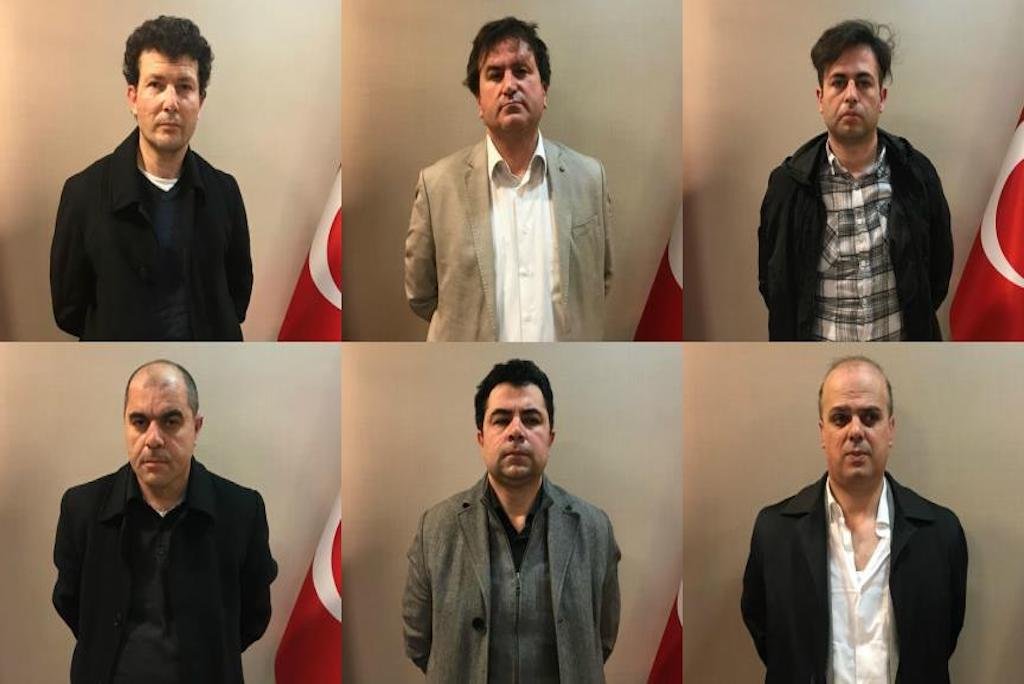A new report released by the Advocates of Silenced Turkey (AST) has detailed the dirty tactics used by the Justice and and Development Party (AKP) led by Turkish President Recep Tayyip Erdoğan against alleged members of the Gülen movement at home and abroad.
The AST report, titled “Turkish Government’s New Strategy: Request Extradition of Hizmet Sympathizers Using Fabricated Documents and False Claims,” stated that “just like that is in the Interpol example, unless someone stops the dirty plans of Erdoğan government, unless someone raises against the extradition claims based on fake documents and false accusations and serving as a cradle to the human rights violation, the civilised world will become the implementer of the dirty plans of the AKP government.”
 Discussing the deleterious effects of an ongoing state of emergency declared after a coup attempt in 2016, the relentless persecution of adherents of the Gülen movement, the current crackdown on social media critics of a Turkish military offensive in Syria, the suspension of the rule of law in Turkey, the jailing of journalists and suppression of the free press and the attempted extradition or abduction of dissidents who have fled Turkey for asylum overseas, AST concludes by saying, “We are appealing to all the organisations authorised in the scope of the above mentioned issues to generate awareness of the subject and to take all the necessary measures.”
Discussing the deleterious effects of an ongoing state of emergency declared after a coup attempt in 2016, the relentless persecution of adherents of the Gülen movement, the current crackdown on social media critics of a Turkish military offensive in Syria, the suspension of the rule of law in Turkey, the jailing of journalists and suppression of the free press and the attempted extradition or abduction of dissidents who have fled Turkey for asylum overseas, AST concludes by saying, “We are appealing to all the organisations authorised in the scope of the above mentioned issues to generate awareness of the subject and to take all the necessary measures.”
According to the report, due to the fact that extradition requests are also subject to investigation within the law of the recipient country, those requests will not contain any claims regarding so-called membership in the terror organizations, or similar. “Therefore, fabricating the attention-grabbing accusations by Erdoğan government will probably take place, in order to mislead the addressee, aiming to fulfill its own objectives. Otherwise nothing more can be done than controverting their own assertions,” read the report.
“In this context the unfilled accusations, such as the so-called membership in and leading the terror organizations, along with money laundering and tax evasion, can be discussed,” said the report and added that “In Turkey, where half of the judicial organisations were demoted and thousands of judges and prosecutors were put behind bars, it is impossible to take a single decision, which is not what the authority wants.
“Even if any judge would show courage and take a decision that is not on benefit of the authority, he can find himself under investigation almost the same day, or, at best, at another position overnight. At this point, the state at its notion has become such a huge monster, that even basic human rights, for an instance, right of seeking justice in case of illegal executions or right to a fair trail, are made lost their meanings.”
Turkey survived a controversial military coup attempt on July 15, 2016 that killed 249 people. Immediately after the putsch, the Justice and Development Party (AKP) government along with President Erdoğan pinned the blame on the Gülen movement.
Fethullah Gülen, who inspired the movement, strongly denied having any role in the failed coup and called for an international investigation into it, but President Erdoğan — calling the coup attempt “a gift from God” — and the government initiated a widespread purge aimed at cleansing sympathizers of the movement from within state institutions, dehumanizing its popular figures and putting them in custody.
Turkey has suspended or dismissed more than 150,000 judges, teachers, police and other civil servants since July 2016. Turkey’s interior minister announced on December 12, 2017 that 55,665 people have been arrested. On December 13, the Justice Ministry announced that 169,013 people have been the subject of legal proceedings on coup charges since the failed coup.
A total of 48,305 people were arrested by courts across Turkey in 2017 over their alleged links to the Gülen movement, Interior Minister Süleyman Soylu said on Dec. 2, 2017. “The number of detentions is nearly three times higher,” Soylu told a security meeting in İstanbul and claimed that “even these figures are not enough to reveal the severity of the issue.”
















[…] Source link […]